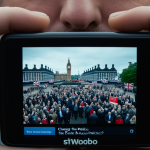Overview of Sleep Tracking Technology
Sleep tracking technology has become essential in understanding athletic recovery and enhancing performance. Various devices, such as wearable bands, rings, and even mattress sensors, track key sleep metrics. They measure sleep stages like REM and deep sleep, heart rate, and movement patterns, offering insightful data to optimise recovery.
Historically, the significance of sleep in sports performance wasn’t fully recognised. Early research in sleep science began to uncover the vital connection between sufficient, quality sleep and athletes’ physical and mental well-being. It showed sleep’s role in consolidating memories, repairing muscles, and reducing the risk of injuries.
In parallel : Battle-ready: your guide to top gel blaster guns today
Sleep tracking technology can be particularly beneficial for athlete recovery. By pinpointing inconsistent sleep patterns, athletes and their coaches can identify areas for improvement. Enhanced recovery can potentially equate to improved performance enhancement, allowing athletes to accomplish more during competitions and training.
Overall, sleep tracking empowers teams to incorporate scientific insights into training regimens. With continuous innovation, technology is increasingly adaptable, making it crucial for athletes aiming to gain a competitive advantage through optimised rest and recovery. This modern approach merges traditional sports strategies with cutting-edge technology for comprehensive athlete care.
Topic to read : Designing a Winning Tactical Training Blueprint for Aspiring Ice Hockey Defenders: An All-Inclusive Handbook
Applications of Sleep Tracking in Rugby
Incorporating sleep tracking technology in rugby training programs has transformed how teams monitor and enhance performance metrics. Utilising wearable devices allows for a comprehensive analysis of an athlete’s sleep patterns, revealing correlations between rest and on-field performance.
Sleep metrics provide crucial insights into how well athletes recover, guiding coaches in their approach to individual and team training sessions. Key metrics such as total sleep duration, sleep efficiency, and consistency of sleep schedule are closely monitored. Performance monitoring benefits significantly from this data, enabling tailored strategies to enhance game readiness.
By identifying disruptions in sleep patterns, sleep tracking technology assists in crafting individualized recovery plans. Coaches may adjust training intensity, strategise rest periods, and even alter travel schedules to optimise sleep. These insights prove invaluable in preventing burnout and promoting a balanced work-rest cycle.
In the dynamic and physical realm of rugby, ensuring players are well-rested directly corresponds with improved performance outcomes. Thus, technology has become integral to player development, not only identifying areas of improvement but also revealing opportunities to achieve maximum performance. Somnology continues to evolve, offering rugby teams unprecedented advancements in their training arsenal.
Expert Opinions on Sleep Tracking Technology
Sports science experts are increasingly endorsing sleep analysis as a crucial component of athletic performance management. They emphasize that understanding sleep patterns can provide significant insights into physical and mental health, vital for athletes. Experts predict that the future of sleep tracking in sports will see more sophisticated tools capable of synchronizing with other health metrics, offering a more comprehensive analysis of an athlete’s well-being.
Testimonials from coaches demonstrate that incorporating sleep data into training programs can significantly enhance performance. Coaches have observed noticeable improvements in players’ energy levels and a reduction in sports-related injuries by fine-tuning training and rest schedules based on sleep data. This adaptation leads to more effective performance enhancement, optimizing both individual and team success.
Anticipating future trends, experts suggest that innovations in sleep technology will likely evolve toward more non-invasive, high-precision devices. These advancements aim to offer deeper analysis and easier integration into training routines. The increasing sophistication of such tools is poised to elevate how athletes understand their recovery needs, ensuring they remain at the peak of their game while minimizing the risk of burnout and injuries.
Case Studies Highlighting Effectiveness
Utilising real-life examples and compelling sports science case studies, the adoption of sleep tracking technology showcases notable impacts on athlete performance.
Case Study: International Rugby Team
An international rugby team integrated advanced sleep tracking tools into their regimen, revealing significant performance gains. By assessing players’ sleep metrics, the team discovered correlations between optimal rest and on-field efficiency. Improved sleep patterns led to enhanced endurance, sharper focus, and reduced fatigue during matches. This evidence-based approach not only validated the technology’s value but also highlighted its potential to revolutionize performance monitoring.
Case Study: Individual Athlete Performance
A prominent rugby player utilized tailored sleep strategies following meticulous sleep data analysis. This enabled personalized recovery plans that improved sleep quality and resulted in peak performance. Distinct improvements: reaction time enhancement and agility boost were observed, demonstrating sleep’s critical role in honing an athlete’s edge.
Case Study: Sleep Tracking Implementation Challenges
Despite notable benefits, implementing sleep tracking faced hurdles, including data privacy concerns and technology cost barriers. Lessons from these challenges suggest prioritizing transparency and affordability in future adoption strategies. Emphasizing cooperation between tech providers and teams can foster best practices, unlocking further potential for widespread beneficial use of sleep tracking within sports.
Benefits of Improved Sleep for Athletes
Understanding the physiological advantages of quality sleep can significantly impact athletic performance. High-quality sleep supports muscle repair and growth, crucial for maintaining optimal physical condition. Furthermore, it aids in memory consolidation, allowing athletes to better internalise training and strategies. Enhanced sleep boosts immune system function, reducing susceptibility to common illnesses that might disrupt training schedules.
What’s more, studies reveal a strong correlation between improved sleep and injury prevention. According to research, athletes who log adequate sleep are less likely to sustain injuries, thanks to heightened focus and quicker reaction times. Reduced fatigue levels directly contribute to more consistent performance, as alertness on the field is maintained.
From a psychological standpoint, quality sleep offers mental restoration and increased resilience to stress. Athletes often endure high-pressure environments, and mental recovery is as vital as physical restoration. A notable reduction in anxiety levels enables better focus and motivation, positively influencing overall sports performance.
Experts advocate for integrating sleep optimisation into training regimens, citing both physical and mental benefits. Ultimately, recovering adequately through sleep supports athletes in achieving excellence and sustaining long-term career success. Comprehensive recovery strategies, rooted in sleep benefits, further safeguard athletes against career-threatening injuries.



